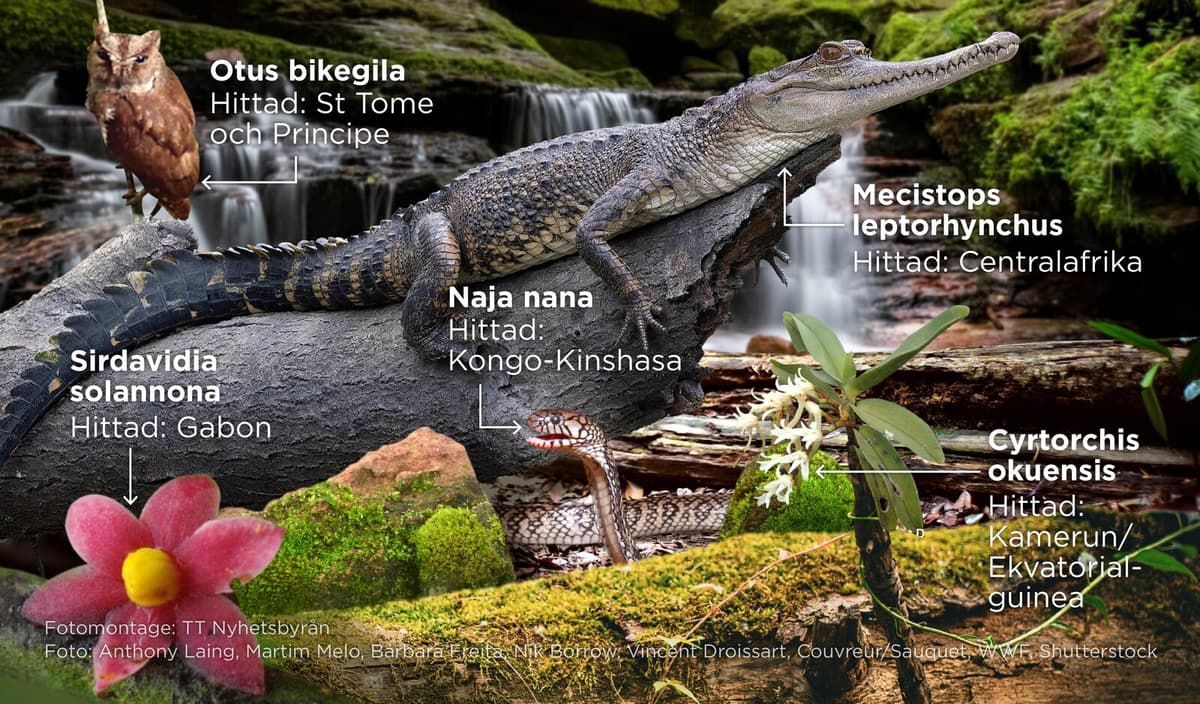The biological diversity is threatened in many places around the world, but there are glimmers of hope. According to a fresh report from the World Wildlife Fund (WWF), 742 animal and plant species, previously unknown to science, have been discovered.
These include everything from orchids and ants to birds, lizards, and mammals. Among the animals in the report are, for example, two species of bats, a new species of narrow-snouted crocodile, and an owl species.
One example is the dragonfly "Umma gumma", named after Pink Floyd's album from 1969. There is also a beetle, Clarias monsembulai, which can grow up to 25 centimeters long and can breathe on land.
The report also includes a newly discovered species of coffee, Coffea rizetiana, and the Principedwarf owl. The owl was discovered in 2022 on the island of Príncipe in Sao Tome and Principe and is characterized, among other things, by a cat-like call.
At the same time as new species are being found in the rainforests, they are threatened due to deforestation and overexploitation of various species through, among other things, poaching. The central African narrow-snouted armored crocodile, for example, is threatened by poaching.
WWF believes that it is urgent to protect the biological diversity in the Congo Basin's rainforests.
"It is extremely important to protect and use these forests in a responsible manner so that we can also in the future discover new species", says Olle Forshed, rainforest expert at WWF, in a press release.
The report covers species found in the Congo Basin's rainforests and described scientifically for the first time between 2013-2023.
It covers six countries: Cameroon, the Central African Republic, the Democratic Republic of the Congo, Equatorial Guinea, Gabon, and the Republic of the Congo.
A total of 742 newly discovered species are listed, including 430 plants, 140 invertebrates, 96 fish, 22 amphibians, 42 reptiles, 2 birds, and 10 mammals.
Although the species are new to science, many of them have long been known to indigenous peoples.
Source: WWF






